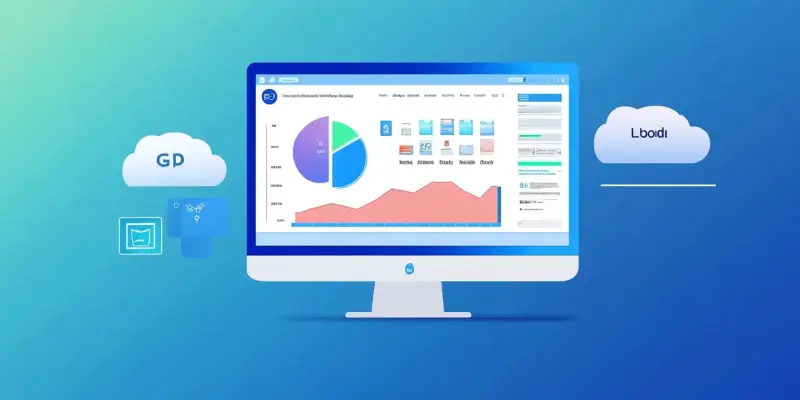In today’s ever-evolving business landscape, companies of all sizes face a crucial decision regarding their enterprise resource planning (ERP) systems. Many organizations have relied on Microsoft Dynamics GP for years, benefiting from its reliability and comprehensive features. However, as technology advances and business requirements change, the question arises: should businesses modernize Dynamics GP by transitioning it to the cloud? This dilemma involves balancing the benefits of a trusted but aging system against the opportunities and challenges posed by new platforms and technologies. Importantly, businesses do not need to completely overhaul their operations but can instead modernize their existing setup by moving Dynamics GP to the cloud.
This approach offers several advantages, including secure access from any location, built-in backups, and the elimination of hardware maintenance issues. Solutions like PowerGP Online facilitate this transition by adding modern capabilities such as REST APIs, Power BI dashboards, and simplified data imports, all while preserving the familiar GP foundation. This allows organizations to enhance performance, security, and flexibility without starting from scratch. Working with partners who specialize in Dynamics GP can further streamline this process, ensuring a smooth transition and ongoing support. Through cloud migration, businesses can free up IT resources and focus on strategic initiatives that drive growth.
The Benefits of Cloud Migration for Dynamics GP
Migrating Microsoft Dynamics GP to the cloud brings a myriad of benefits, chief among them the enhanced accessibility it offers. Employees can access the system from any location with an internet connection, fostering greater flexibility and supporting remote work scenarios. This flexibility can be crucial in today’s dynamic workforce environment, where the ability to work from anywhere often translates to higher employee satisfaction and productivity. Moreover, cloud-based systems typically come with built-in security measures such as multi-factor authentication, ransomware protection, and data encryption, offering a robust defense against cyber threats.
Another significant advantage is the reduction in the need for physical hardware maintenance. On-premises servers require regular upkeep, which can be costly and time-consuming. By shifting Dynamics GP to the cloud, organizations can eliminate this requirement, thereby reducing costs and relieving the IT team of these cumbersome tasks. Additionally, cloud providers often ensure that backups and disaster recovery plans are an integral part of their service, providing peace of mind that data is safe and can be quickly restored in case of an emergency. This resilience further underscores the cloud’s suitability for modern business environments that demand reliability and continuity.
Enhancing Capabilities with Modern Tools
Transitioning Dynamics GP to the cloud also introduces modern capabilities that can significantly enhance overall functionality. Solutions like PowerGP Online play a pivotal role by integrating advanced features such as REST APIs and Power BI dashboards. These additions enable more sophisticated data analysis and visualization, allowing businesses to make more informed decisions based on real-time insights. The ability to import data seamlessly further boosts operational efficiency, reducing the time and effort required to derive valuable insights from business data.
Moreover, these modern tools can help organizations stay competitive in an increasingly data-driven market. Enhanced analytics and reporting capabilities empower businesses to identify trends, spot opportunities, and address challenges more proactively. Keeping the familiar GP foundation means that employees do not need extensive retraining, as the core system remains the same. Instead, they benefit from a smoother workflow and faster access to crucial business data, improving overall productivity and decision-making processes.
Partnering for a Seamless Transition
When considering a move to the cloud, partnering with experts who specialize in Dynamics GP is crucial for a smooth transition. These partners possess the necessary expertise to facilitate migration and provide ongoing support. Unlike vendors who might advocate for an entirely new ERP solution, specialized partners understand the intricacies of Dynamics GP and can offer solutions tailored to enhance its existing infrastructure. This partnership can be likened to having a mechanic who specializes in maintaining a classic car rather than pushing for a new one; it ensures continuity and preserves the value of the existing system.
Furthermore, moving Dynamics GP to the cloud through expert partners enables businesses to focus on core functions rather than getting bogged down by technical challenges. =These partners can handle upgrades, patches, and maintenance, ensuring the system remains up-to-date and secure. As a result, internal IT resources are freed to concentrate on strategic initiatives that drive innovation and growth. This division of labor not only improves operational efficiency but also aligns with modern business practices that prioritize agility and responsiveness.
Conclusion: Balancing Tradition with Innovation
In today’s dynamic business environment, enterprises of all sizes must make crucial decisions about their ERP systems. Many have relied on Microsoft Dynamics GP for its reliability and comprehensive features. However, with advancing technology and evolving business needs, the question arises: should businesses modernize Dynamics GP by moving it to the cloud? This involves balancing the benefits of a trusted but aging system against the opportunities and challenges of new platforms. Importantly, companies don’t need to overhaul their operations entirely; they can modernize by transitioning Dynamics GP to the cloud.
This move offers several benefits, including secure access from any location, built-in backups, and eliminating hardware maintenance. Solutions like PowerGP Online support this transition by adding modern features like REST APIs, Power BI dashboards, and simplified data imports while preserving the GP foundation. This enhances performance, security, and flexibility without starting anew. Partnering with Dynamics GP specialists can streamline this process, ensuring a smooth transition and ongoing support. Cloud migration allows businesses to free up IT resources and focus on strategic growth initiatives.

